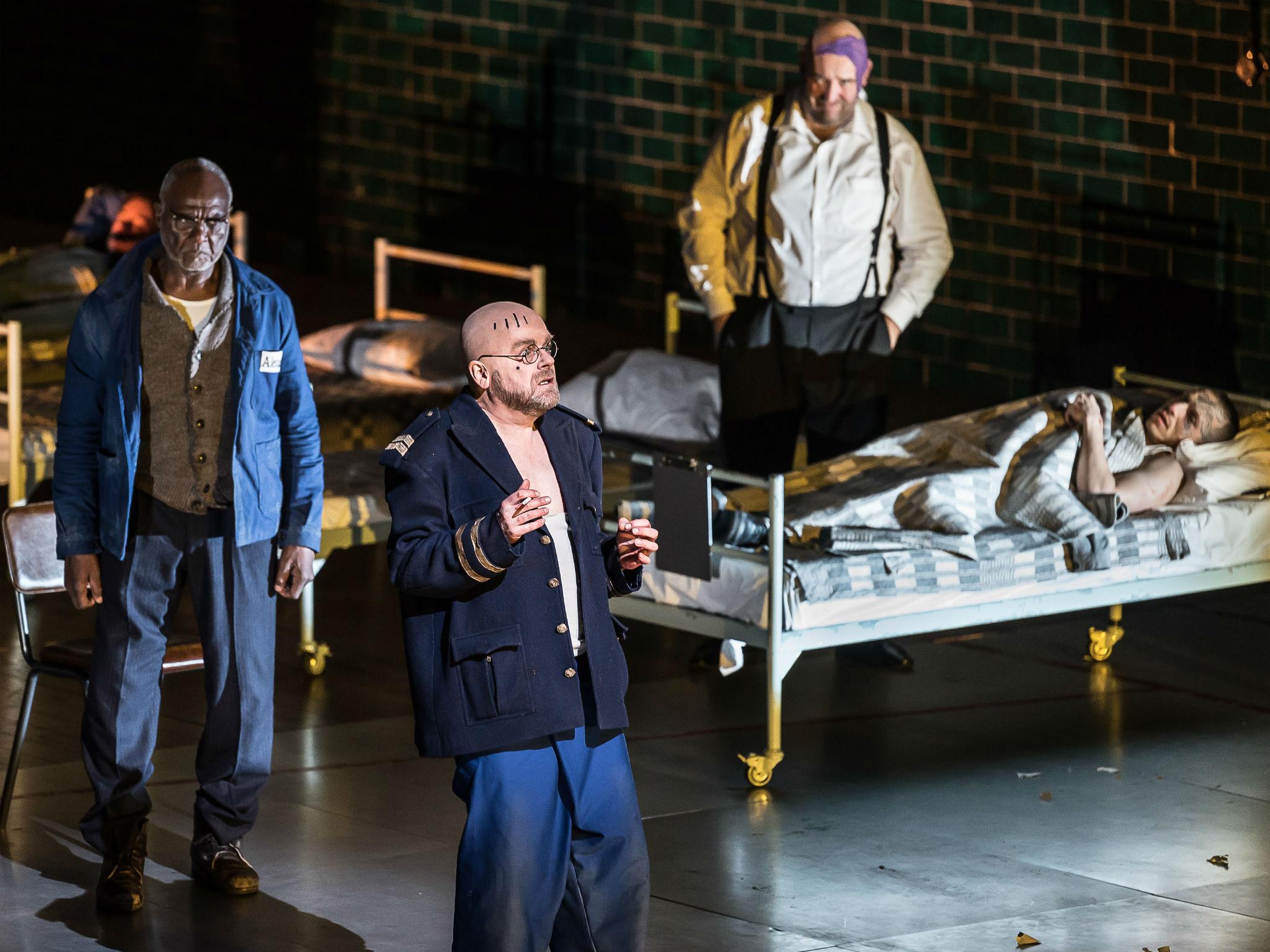From the House of the Dead, Royal Opera House, London, review: The director doesn’t understand the first principle of his craft - that less is more
Despite a strong cast, the Polish director Krzysztof Warlikowski's version of Janacek’s opera, which is based on Dostoevsky’s memoir 'From the House of the Dead', is disappointing

Your support helps us to tell the story
From reproductive rights to climate change to Big Tech, The Independent is on the ground when the story is developing. Whether it's investigating the financials of Elon Musk's pro-Trump PAC or producing our latest documentary, 'The A Word', which shines a light on the American women fighting for reproductive rights, we know how important it is to parse out the facts from the messaging.
At such a critical moment in US history, we need reporters on the ground. Your donation allows us to keep sending journalists to speak to both sides of the story.
The Independent is trusted by Americans across the entire political spectrum. And unlike many other quality news outlets, we choose not to lock Americans out of our reporting and analysis with paywalls. We believe quality journalism should be available to everyone, paid for by those who can afford it.
Your support makes all the difference.Dostoevsky’s memoir From the House of the Dead was based on his searing experiences in a Siberian prison. Janacek’s opera faithfully follows suit, but director Krzysztof Warlikowski thinks of the prison as being anywhere where thought can be a crime. An ideological prison, he says, foreshadows a physical one.
Well, yes, but the imagery he chooses to project onto a zinc screen during the overture is itself obfuscatingly ideological: film of the French philosopher Michel Foucault mouthing a subtitled series of pseudo-intellectual would-be profundities about “justice”, which are a million miles from the finely nuanced observations of Dostoevsky and Janacek.
After neutralising the overture, Warlikowski does the same for the opening scene in which new prisoner Gorjancikov (Willard White) is inducted into the system and ritually whipped. But this Polish director ensures that our attention is held elsewhere, filling the stage with extraneous business while the real drama is confined discreetly to a corner; the original awfulness of the punishment is reduced to a standard roughing-up, as seen any night on TV.
Moreover, this jail looks American, and is a rather jolly place, with neatly dressed, well-fed inmates, and all mod cons. The symbolic moment with the injured eagle is submerged in such a clutter of hyperactivity that it passes unnoticed; likewise nobody on stage seems to hear when Skuratov (Ladislav Elgr) laments his wasted life in Moscow, because they are all acting their heads off. Yet it’s on moments of sudden intensity like this that this opera, if it’s going to work, must depend.
Act two comes prefaced by a projected interview with a black convict on death row in some unspecified place: the shocking genuineness of this documentary footage serves to upstage totally the scene which follows, in which the Dagestani prisoner Aljeja (Pascal Charbonneau) talks movingly about his family back home. And when it’s time for the prison theatricals, champagne materialises, wonderful costumes and inflatable dolls come out of the prop box, and the cast start cross-dressing, while four black prisoners turn out to be world-class break-dancers. Yes, Warlikowski’s prison really is a fun place.
It’s only in act three that the opera itself is allowed to speak untrammelled, as Siskov (superbly incarnated by Johan Reuter) tells his miserable tale of love, cuckoldry, and murder; but even here Warlikowski injects a piece of superfluous literalism in the form of a female figure which mimes what Siskov’s story is about. The whole point about this opera is that it’s men-only, with the women whom its men have loved, betrayed, or murdered lurking unseen in their minds. These women should be evoked by the power of the music, but this director doesn’t trust his material to speak for itself.
Great expectations had been laid on this co-production with two other European opera houses; it would be Covent Garden’s first stab at this great work, and in a definitive new version; the cast is a very strong one, and Mark Wigglesworth has been brought in to conduct. But what can you do when your director doesn’t understand the first principle of his craft – that less is more. Twenty years ago ENO mounted a production by Tim Albery which showed brilliantly how this opera could be staged. Since Warlikowski’s travesty has, I would guess, zero chance of a revival, ENO should revive their production.
Until 24 March (roh.org.uk)
Join our commenting forum
Join thought-provoking conversations, follow other Independent readers and see their replies
Comments